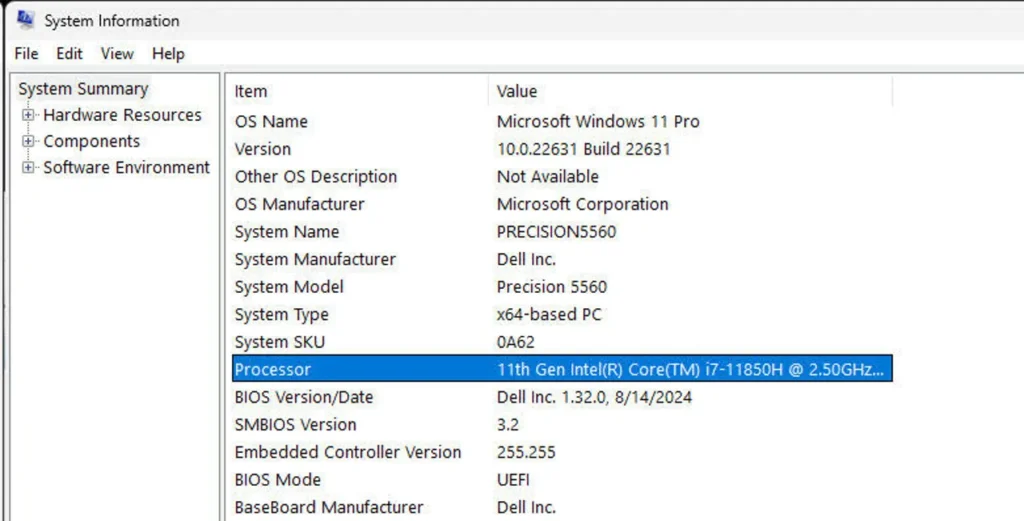Why Your Windows 10 PC’s Days Are Numbered
By October 2025, Microsoft will stop releasing security updates for Windows 10. While upgrading to Windows 11 seems like the logical step, not all PCs are compatible. Here’s how to determine your PC’s fate.
Step 1: Check Your PC’s Processor
Your processor (CPU) plays a critical role in determining compatibility. On Windows 10, use the System Information tool (search for Msinfo32.exe). Under “System Summary,” locate the Processor entry.
Next, match your CPU against Microsoft’s list of supported processors:
- Intel: Compatible CPUs start with 8th-generation Intel Core processors (2019 and newer). A few high-end 7th-generation models also qualify.
- AMD: Most Ryzen and Epyc processors released in 2019 or later are supported.
- Qualcomm: Snapdragon 850 or newer CPUs are eligible.

If your CPU is supported, your PC likely includes a Trusted Platform Module (TPM) 2.0, a critical Windows 11 requirement.
Step 2: Identify Your PC’s Era
Modern PCs (2019 or later)
If your PC was built in 2019 or later, you’re in luck. These machines are fully compatible with Windows 11 and equipped to last another decade. You can upgrade using Windows Update or the Windows 11 Installation Assistant.
Windows 10-Era PCs (2016–2019)
These “middle-aged” PCs may lack official support for Windows 11, but many can still run it smoothly. Use Microsoft’s registry edit workaround to bypass compatibility checks. With a TPM 2.0 and reasonable specs, these PCs can remain useful for 5+ years.
Windows 7/8-Era PCs (2010–2015)
PCs from this era are considered outdated but may still have some life left. Check for a TPM module (even TPM 1.2 is sufficient) and verify CPU compatibility. Intel-powered machines often fare better than AMD ones for upgrades. However, these systems are nearing the end of their practical lifespan.
Pre-2010 PCs
These “ancient” systems rarely meet Windows 11’s stringent requirements. Without modern CPU instructions or TPMs, upgrading is almost impossible. Alternatives like Linux can breathe new life into these workhorses.
What If Your PC Isn’t Compatible?
If your machine fails compatibility checks, here are your options:
- Stick with Windows 10: Microsoft plans to offer paid security updates after 2025.
- Upgrade Hardware: Consider purchasing a new PC that supports Windows 11.
- Try Linux: Lightweight Linux distributions are excellent for older hardware.
- Third-Party Workarounds: Tools like Rufus allow you to bypass compatibility restrictions, though results may vary.
- Recycle Your PC: If it’s truly outdated, consider eco-friendly recycling.
Conclusion
Assess your PC’s age, processor, and TPM to determine its upgrade eligibility. While modern PCs have a bright future with Windows 11, older ones may need creative solutions—or a graceful retirement.

